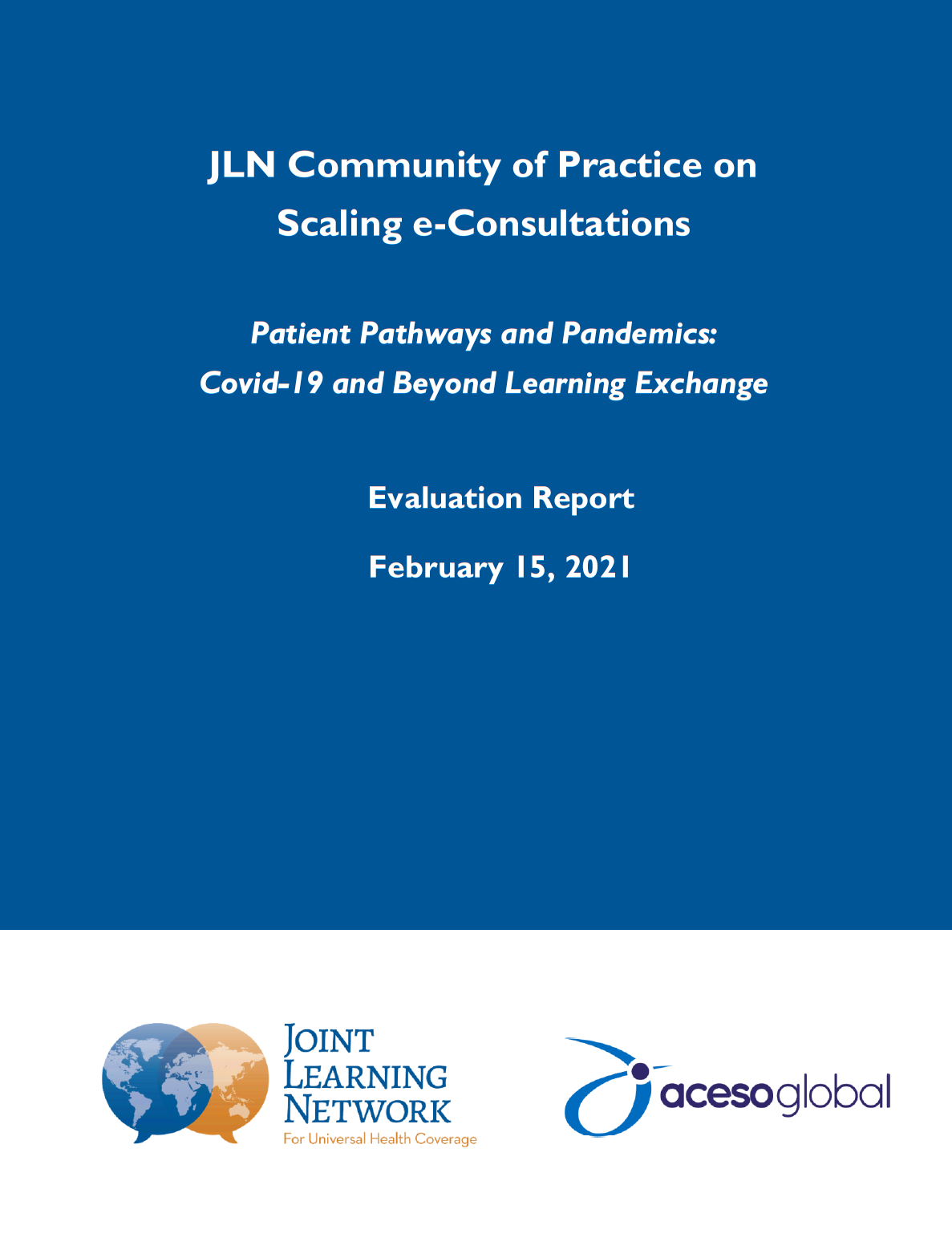
Evaluation Report: JLN Community of Practice on Scaling e-Consultations
Following the 2020 Joint Learning Network’s Learning Exchange on Patient Pathways and Pandemics: COVID-19 and Beyond, led by Aceso Global, a technical team was launched to focus on implementing and scaling up E-consultations at the primary health care (PHC) level. The CoP was designed to foster practical learning by accompanying implementation in an “implementer” country, Malaysia, which had previously launched an E-consultation initiative during the pandemic and wanted to improve and expand it further. Technical facilitators and country participants provided support and learnings. This mixed methods evaluation aimed to understand how real-time implementation within a technical team supported Malaysia’s preparation for and implementation of the E-consultation extension initiatives.
